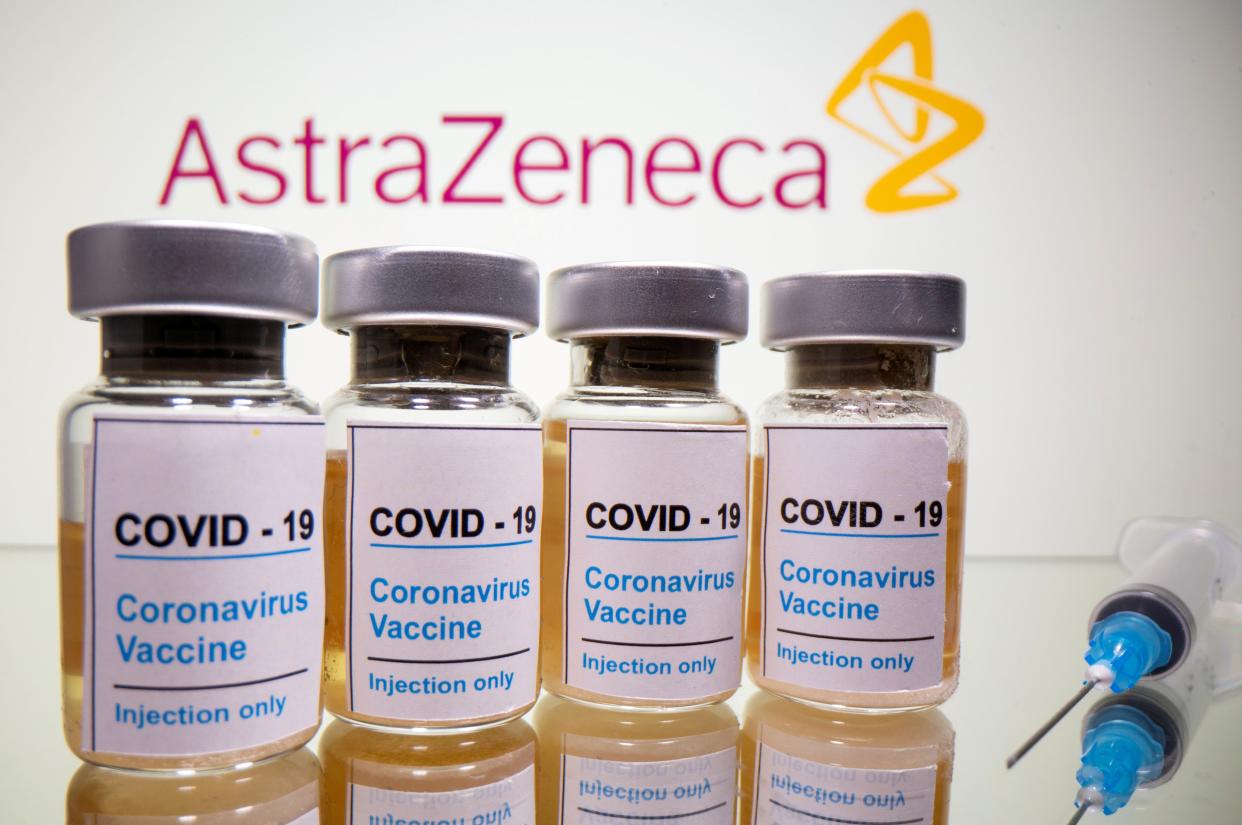Canadian province halts AstraZeneca vaccinations over reports of blood clotting

File image: Ontario’s chief medical officer for health says the decision was made out of an abundance of caution
(Reuters)Canada’s largest province, Ontario, on Tuesday announced that they would stop offering first doses of the Covid-19 vaccine developed by AstraZeneca-University of Oxford citing evidence that the risk of rare blood clots is higher than previously estimated.
Ontario’s chief medical officer for health Dr David Williams said the decision was made out of an abundance of caution because of increased instances of the rare blood clotting disorder linked to the shot.
“Over the last few days there have been increased reports. We are reviewing the data to consider options for the use of the AstraZeneca vaccine for second doses and more broadly,” he said.
The Covid-19 vaccine developed by AstraZeneca is already restricted in some European countries because of similar concerns. In Canada, at least 12 cases have been confirmed out of more than 2 million doses given, and three women have died.
Dr Williams, however, said that they “maintain that those who received their first dose with the AstraZeneca vaccine did absolutely the right thing to prevent illness and protect their families, loved ones and communities.”
Canada’s health regulator has consistently said that the vaccine’s benefits outweigh any risks. Canada’s prime minister Justin Trudeau and Ontario’s premier Doug Ford both both recently received their first dose of AstraZeneca’s vaccine.
According to Mr Trudeau, almost 50 per cent of eligible adults in Canada have received at least one shot of a coronavirus vaccine. Most of that is Pfizer and Moderna. He said that by the summer, Canada will have enough vaccines so that every eligible resident will have gotten their first dose and by September it will have enough doses for everyone to be fully vaccinated.
Another province, Alberta, also halted AstraZeneca’s vaccine but due to uncertainty about arrival of more shipments, and not due to concerns about the side effects.
So far, Canada has distributed just over 20 million doses of various Covid-19 vaccines, and 11.6 per cent were AstraZeneca’s vaccine. Officials are mostly looking to alternative vaccines, Pfizer and Moderna, which have pledged to send more than enough vials to vaccinate every Canadian with two doses eventually.
Following the news about Ontario stopping the use of AstraZeneca’s vaccine, some users on social media suggested sending any surplus vaccines to India, which is struggling with a severe second wave of Covid-19.
Naheed Dosani, a Toronto-based Palliative care physician, tweeted: “Humble suggestion: Ontario should send surplus AstraZeneca doses to India to help stop a humanitarian crisis.”
Many raised questions about the 850,000 people in Ontario who have already taken the first shot of the AstraZeneca vaccine.
Thinking of everyone in Ontario who took the AstraZeneca vaccine.
Today's announcement to pause first doses was shared in a way that lacked empathy or sensitivity.
Know that everything will be ok and we will get through this.— Ahmed Ali (@MrAhmednurAli) May 11, 2021
Ahmed Ali, a Toronto-based researcher, in a series of tweets said that “effective and inclusive science communication isn’t as hard as Ontario makes it out to be”.
“Thinking of everyone in Ontario who took the AstraZeneca vaccine. Today’s announcement to pause first doses was shared in a way that lacked empathy or sensitivity. I don’t know who needs to hear this, but taking the AstraZeneca vaccine was a good decision so don’t overthink it,” Mr Ali said.
Since the start of the pandemic Canada has recorded over 1.28 million cases of Covid-19 including over 24,600 deaths.
Additional reporting by agencies
Read More
Iran state TV says Ahmadinejad will run in presidential race
Democrats press for broader voter access as GOP resists
Biden and McConnell may be friends, but can they cut a deal?

